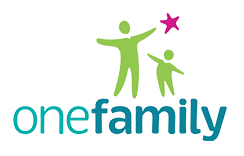One-Parent Family Payment
The One-Parent Family Payment is a means-tested payment available to women and men under the age of 66 who are the main carers of their children or are raising their child or children without the support of a partner.
You can be in employment and receive One-Parent Family Payment, if you meet the criteria which include a means test.
To qualify for a One-Parent Family Payment you must:
- Be aged under 66;
- Be a parent, stepparent, adoptive parent, or legal guardian of a child;
- Have a child aged 7 years or younger (there are exceptions, see below);
- Be the main carer of the child, and they must live with you (Important – One-Parent Family Payment is not payable if the parents have joint equal custody of the child);
- Satisfy a means test; and
- Be habitually resident in Ireland.
You will not qualify if:
You are living with a spouse, civil partner, or cohabitant.
You can earn a certain amount without it affecting the payment (currently €165 weekly gross). If you earn over that amount, you can receive a reduced payment up to a set limit.
One-Parent Family Payment Rates 2024
Maximum personal weekly rate: €232
Child aged under 12 years: €46 additional payment for each child weekly
Child aged 12 years and over: €54 additional payment for each child weekly
As long as your youngest child is under the age limit (currently 7 yrs), an Increase for a Qualified Child (IQC) will be paid for other children in the family until they reach 18 (or 22 if in full-time education). You must notify the Department if a new baby is born as they will not be added to your payment automatically.
One-Parent Family Payment & Maintenance
There is information on the changes to how maintenance is to be assessed on our website here: Changes to how child maintenance is treated.
One-Parent Family Payment and Employment
You can be in employment and receive the One-Parent Family Payment. The rate of payment will be based on your weekly means from your earnings (wages and profit from self-employment). There is an income disregard for the first €165 of your gross weekly earnings. This means you can earn up to €165 a week and may still qualify for the full OFP. Half of the remaining amount of your gross weekly earnings is assessed as means. You can consult the Department’s rates book here to see what your payment will be, based on your means.
When can I apply?
If you are parenting alone and meet the requirements above, you should apply for the One-Parent Family Payment once your baby is born. You will need the baby’s birth certificate to apply.
If you were living with a partner, are not married, and the relationship ends, then you can apply for the payment once you are living apart. If you are married or in a civil partnership and the relationships ends you are required to be living separately from your spouse or civil partner for a minimum of 3 months.
When your youngest child turns seven years old
You will stop getting One-Parent Family Payment when your youngest child turns 7. There are some exceptions to this:
Domiciliary Care Allowance: your One-Parent Family Payment may continue until the child you are getting the Domiciliary Care Allowance for is 16 or your youngest child turns 7 – whichever is later.
Blind Pension: your One-Parent Family Payment may continue until your youngest child is 16.
Carer’s Allowance: your One-Parent Family Payment may continue until your youngest child is 16, or until your Carer’s Allowance stops, whichever is earlier.
Recent Bereavement: if your spouse or civil partner has died, you can claim One-Parent Family Payment for up to two years after the death or until your youngest child turns 18, whichever is earlier.
Your local DSP or INTREO office would be able to tell you if any of these apply in your case.
Jobseeker’s Transitional Payment
When your youngest child turns 7, you will have to apply for a new payment as your One-Parent Family Payment will end.
If you are not in employment, then you can apply for the Jobseeker’s Transitional Payment (JST). This is a payment for lone parents whose youngest child is between 7 and 13 years. If you are in employment, you may have the option to receive Working Family Payment or have that payment increased if you already receive it. It is sometimes more beneficial to be in receipt of JST rather than Working Family Payment as it allows you to continue receiving secondary benefits such as Fuel Allowance, Christmas Bonus etc.
Further information on JST is below
